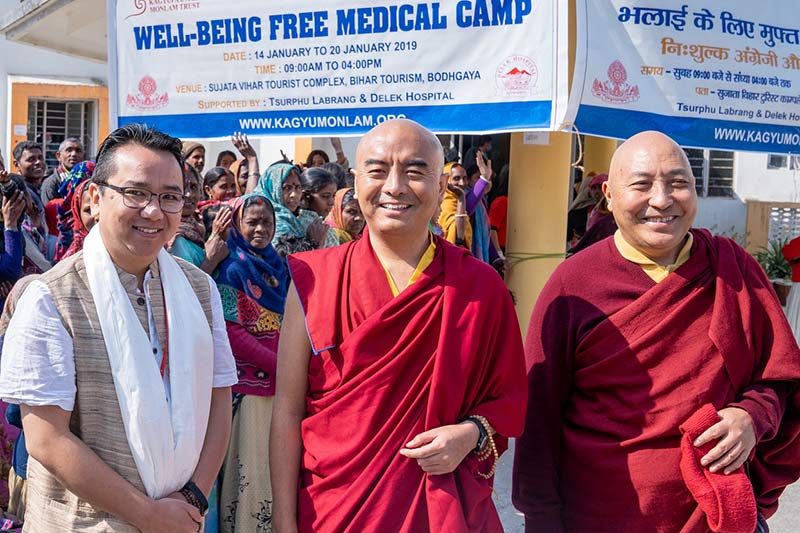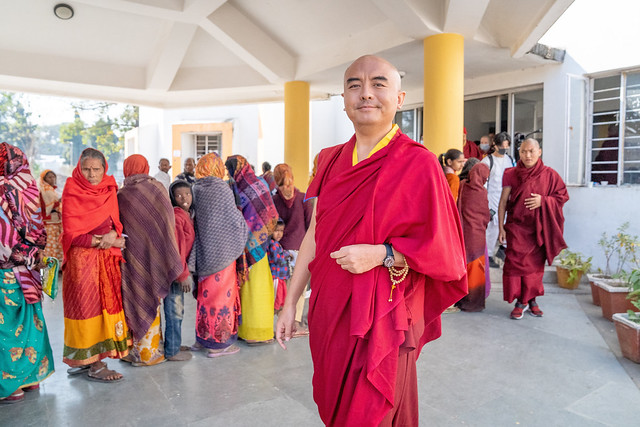
Gazing at the queue of patients huddling tightly for warmth at the Medical Camp gives a glimpse into the lower realms. Bihar is the poorest state in India but their condition is beyond poverty. Many are truly the wretched of the earth, a jumble of skin and bones in threadbare outer garments with parchment skins and haystack hair. Some seem like figures from an apocalypse emerging from under the ground.
Lhakpa Tsering works with His Holiness Karmapa’s office in Delhi and comes to Bodhgaya for the medical camp at the Kagyu Monlam. He has been coming here for the past 5 years and has faced many challenges.
Most of the complaints revolve around malnutrition, joint pain, back pain, cold, cough, fever, stomach problems, vertigo. Last year we had 4-5000 people. We are trying to keep the numbers down this year so we did not do much publicity. Yesterday there were 500 people, the day before, 400. On average we treat 600-700 people a day. The camp has increased from four to seven days running from 9 am to 5 pm.The arrival of Mingyur Rinpoche, who steps lightly from a black SUV, brightens up the starkness. He goes from room to room talking to nurses, doctors, checking the technology, observing the conditions with composure. His radiance and presence is like a healing balm. He’s relaxed in ordinary mind. It is as it is.
Every year we bring more and more professionals to conduct the camp. Now there are 14 nurses, 2 doctors from Himachal Pradesh and another 4 from Gaya Medical College. This year we have a lab technician from the Delek hospital in Dharamsala, and a pharmacist. We collect blood samples; we also give liver and kidney function tests. The hepatitis tests show results in 15 minutes. If the patient doesn’t have it, they are advised to receive a vaccination program. We try to make people aware whether they have it or not.
First they get registered, then they go to a nurse for weight, height, blood pressure, sugar test, temperature, and a pulse check. After that they go to see a doctor who proscribes medicine and they receive counselling. A very important component is counselling. When they pick up their medicine they meet the nurses and pharmacists and get another round of counselling on lifestyle and nutrition. They are told what to avoid, what to eat. We treat between 4-5000 people in the course of a week and then there’s a follow up as well.
If only a course of medical treatments could restore full humanity. Like everything else, it’s not the final answer, but it’s the only way to go. It’s lighting a lamp in darkness.
KARMAPA KHYENNO!


































